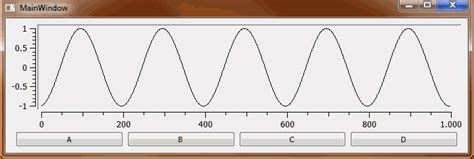How can men naturally optimize T-levels for peak performance & vitality?

Testosterone (T) is a crucial hormone for men, influencing everything from muscle mass and bone density to mood, energy levels, and libido. As men age, T-levels naturally decline, but modern lifestyles often accelerate this process, leading to symptoms like fatigue, decreased strength, reduced sex drive, and cognitive fog. The good news is that many natural, actionable strategies can help men optimize their testosterone levels, unlocking peak performance and revitalized vitality.
Diet and Nutrition: Fueling Your Hormones
Prioritize Healthy Fats
Testosterone synthesis relies heavily on dietary cholesterol and healthy fats. Incorporate sources like avocados, nuts, seeds, olive oil, fatty fish (salmon, mackerel), and coconut oil into your diet. Avoid trans fats and limit excessive saturated fat from processed foods.
Adequate Protein Intake
Protein is essential for muscle building and overall hormonal health. Aim for high-quality protein sources such as lean meats, poultry, eggs, dairy, legumes, and plant-based proteins.
Key Vitamins and Minerals
Several micronutrients play a direct role in testosterone production:
- Vitamin D: Often called the “sunshine vitamin,” Vitamin D is crucial. Spend time in the sun or consider supplementation under medical guidance.
- Zinc: Involved in hundreds of enzymatic processes, including testosterone synthesis. Oysters, red meat, poultry, beans, and nuts are good sources.
- Magnesium: Supports muscle function, energy production, and testosterone levels. Found in dark leafy greens, nuts, seeds, and whole grains.
Embrace Whole Foods and Limit Processed Items
A diet rich in whole, unprocessed foods, fruits, and vegetables provides essential antioxidants and nutrients. Conversely, excessive sugar and processed foods can lead to inflammation and insulin resistance, both detrimental to testosterone.

Exercise: Build Strength, Boost T
Strength Training is King
Resistance training, especially compound movements like squats, deadlifts, bench presses, and rows, has been shown to significantly boost testosterone levels. Aim for 3-4 sessions per week, focusing on progressive overload.
Incorporate High-Intensity Interval Training (HIIT)
Short bursts of intense exercise followed by brief recovery periods can also stimulate testosterone production. HIIT can be an efficient addition to your fitness routine.
Avoid Overtraining
While exercise is beneficial, excessive or prolonged intense training without adequate recovery can elevate cortisol levels, which can suppress testosterone. Listen to your body and prioritize recovery.

Sleep: The Unsung Hero of Hormones
Consistent, high-quality sleep is non-negotiable for optimal testosterone production. Most T is produced during deep sleep phases. Chronic sleep deprivation can drastically lower testosterone levels.
Prioritize 7-9 Hours of Quality Sleep
Aim for 7-9 hours of uninterrupted sleep per night. Establish a consistent sleep schedule, even on weekends.
Optimize Your Sleep Environment
Ensure your bedroom is dark, quiet, and cool. Avoid screens (phones, tablets, TVs) at least an hour before bed, as blue light can disrupt melatonin production.

Stress Management: Taming Cortisol
Chronic stress elevates cortisol, the body’s primary stress hormone. High cortisol levels can directly suppress testosterone production.
Practice Mindfulness and Relaxation
Incorporate stress-reducing techniques into your daily routine. Meditation, deep breathing exercises, yoga, spending time in nature, and engaging in hobbies you enjoy can significantly lower stress levels.
Build Resilience
Developing coping mechanisms and a positive outlook can help mitigate the physiological impact of stress on your hormones.

Lifestyle Factors: Holistic Health
Maintain a Healthy Body Weight
Excess body fat, particularly visceral fat around the abdomen, can lead to increased estrogen conversion from testosterone, further lowering T-levels. Losing excess weight can significantly improve testosterone.
Limit Alcohol and Environmental Toxins
Excessive alcohol consumption can negatively impact T-levels. Furthermore, exposure to endocrine-disrupting chemicals (EDCs) found in plastics (BPA, phthalates), pesticides, and certain personal care products can interfere with hormone balance. Opt for natural products and reduce plastic use where possible.
Get Adequate Sunlight Exposure
Beyond Vitamin D, natural sunlight exposure can positively influence mood and potentially T-levels. Aim for safe, regular sun exposure.

Conclusion
Optimizing testosterone naturally is a holistic endeavor, requiring a comprehensive approach to diet, exercise, sleep, stress management, and overall lifestyle. While individual results may vary, consistently implementing these strategies can lead to significant improvements in energy, strength, mood, and overall vitality. Always consult with a healthcare professional before making significant changes to your diet or exercise routine, especially if you have underlying health conditions or suspect a severe hormonal imbalance. Taking proactive steps today can pave the way for a more vibrant, high-performing you.









